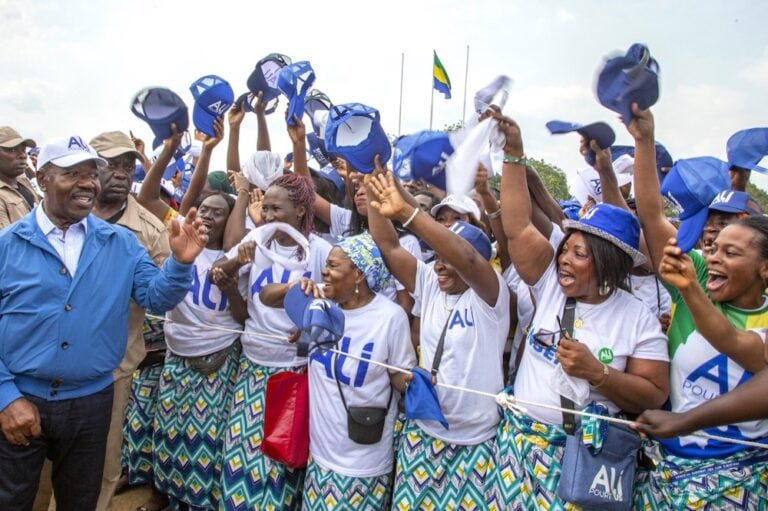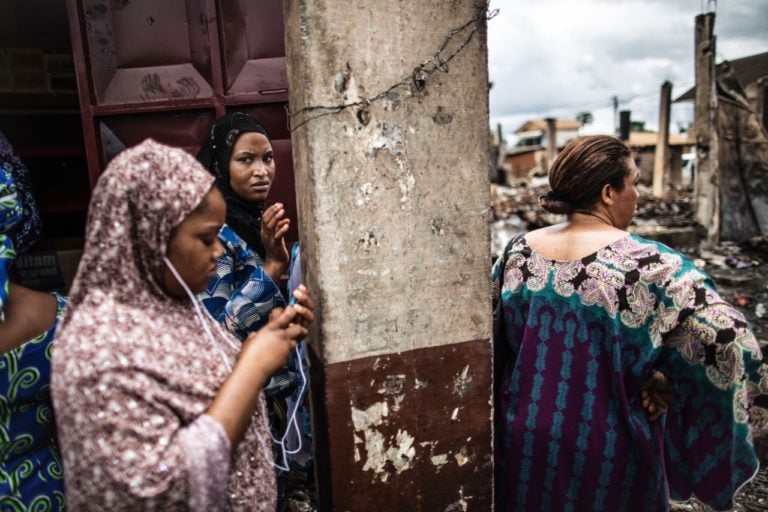(RSF/IFEX) – Habib Papy Boubendji, also known as Habib Bibalou, an investigative journalist with the satirical weekly “Le Nganga”, was badly beaten by soldiers inside the presidential compound in Libreville on the night of 5 December 2008, Reporters Without Borders has learned from several sources. He is now in intensive care in a military hospital […]
(RSF/IFEX) – Habib Papy Boubendji, also known as Habib Bibalou, an investigative journalist with the satirical weekly “Le Nganga”, was badly beaten by soldiers inside the presidential compound in Libreville on the night of 5 December 2008, Reporters Without Borders has learned from several sources. He is now in intensive care in a military hospital near the capital where only his wife is allowed to visit him.
“The beating that Bibalou received and the unanswered questions surrounding it are totally unacceptable,” Reporters Without Borders said. “We urge the Gabonese authorities to publicly explain the attack and to provide information about Bibalou’s present status and state of health.”
The press freedom organisation added: “This incident could easily have ended tragically, with one more name being added to the grim list of journalists who have ‘disappeared’ after falling into the clutches of an African president’s bodyguards.”
Reporters Without Borders got its information independently from various sources that corroborated each other. According to the sources, Bibalou received a severe beating from soldiers inside the presidential compound on the evening of 5 December after being summoned to the president’s office.
The next morning, members of the gendarmerie’s General Directorate of Investigation (DGR) left Bibalou at a military training hospital 9 km outside Libreville and since then he has been in its intensive care unit, where only his wife may visit him. He reportedly has facial bruising, two broken ribs and a broken leg.
Bibalou’s colleagues at “Le Nganga” have stopped going to work since the beating for fear of being arrested as well. The newspaper’s editor, Loïc Bitéghé, cannot be reached. A local source told Reporters Without Borders that Bibalou was first summoned to the president’s office on 2 December, when he was received by President Omar Bongo Ondimba (OBO). Thereafter, he went back to work until the second summons.
In a front-page story for “Le Nganga”‘s 27 November issue (of which Reporters Without Borders has a copy), Bibalou suggested that the president’s chief of staff, his daughter Pascaline Bongo, could have been responsible for the possible embezzlement of 600 million CFA francs (approx. US$ 1.1 million).
The story included a copy of a memo signed by Pascaline Bongo on 26 October 2006 asking “the public treasury to urgently disburse the necessary funds” for a road-building project in an outlying suburb of the capital to be executed by BJN Gabon, a local company.
Although the money was released, “any Libreville driver can tell you that the road network that needed so much money (more than 600 million CFA francs) is largely unchanged,” Bibalou wrote in his article. “Does this mean BJN Gabon did not get all the funding for the work? Or did the money find its way to another destination? Or are we to suppose that this company and the president’s staff agreed not to put it all into the project, to the point of deliberately sabotaging OBO’s policy.”
Although nominally a democracy, Gabon is in practice the personal fiefdom of President Bongo and his family. The privately-owned media try to survive, often taking orders from versatile and readily corruptible politicians. Gabon was ranked 110th out of 173 countries in the latest Reporters Without Borders press freedom index.
Reporters Without Borders meanwhile condemns journalist Alain Richard Nzamba Nzinga’s suspension for one month by state-owned Radio Télévision Gabonaise (RTG 1) for criticising the adoption of a law awarding Gabonese legislators a pension of 1 million CFA francs (approx. US$2,000) a month when they retire from parliament.


